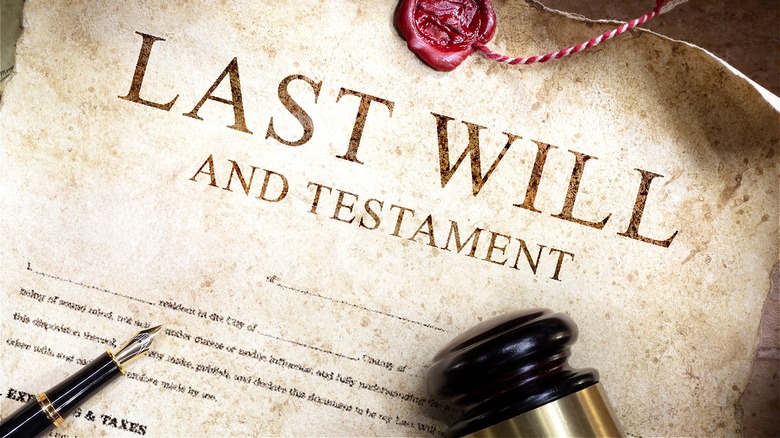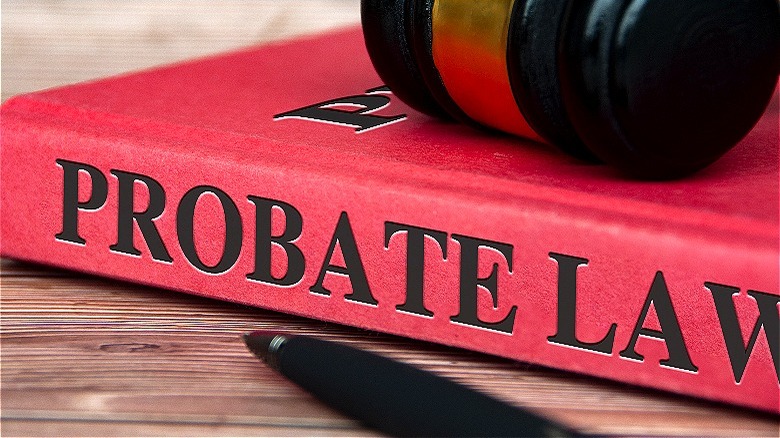What Happens To Your Money If You Die Without A Will?
While it's an uncomfortable thought, everybody one day is going to die. However, as inevitable a reality as that is, many Americans today surprisingly aren't prepared for how their assets will be split amongst their family or dependants. According to an annual survey by elder care information portal Caring.com, just 32% of respondents had wills in 2024, 6% less than in 2023. Meanwhile, two-fifths of the 68% of Americans without a will blame a lack of assets for not bothering to make a last will and testament.
Further, the survey found that people with a postgraduate degree are more than twice as likely to have a will than someone with a high school diploma, which seems to back up the argument that a lack of assets is one of the most serious financial challenges affecting American families in 2024. Although more young people are making wills than in previous years, that's still only 24% of them (up 50% from the 16% in 2020), which is perhaps influenced by how money phobia is affecting younger Americans.
Intestate succession, or the term applied to estate planning carried out by a probate court when someone dies without a will, places all the decision-making power in the hands of a court. Those left behind will still have to deal with the messy remains of your finances without your guidance. Legal, emotional, and financial ramifications abound if you allow estate planning to be an afterthought.
How dying without a will can affect your family's finances
When it comes to managing your estate after you die, it's likely that the probate court will assign a public trustee or executor of the state to handle the allocation of assets unless a spouse volunteers to do so. In that case, they will start with the immediate family first, beginning with your spouse and children or parents and siblings if the former doesn't apply to you.
If assets are allocated to your spouse first, will your spouse be responsible for your debt if you die? Depending on the laws of the state you live in, it's probable. If you're married, it means your spouse will have to deal with the debt before any assets are paid. That may mean property, vehicles, cash, or any other assets you owned at the time of death will be used to pay your debts before any loved ones receive payment. That could also mean, losing the family car or home you shared in order to cover your debts. That's the extreme downside of what happens to your debt after you die.
Should you ever find yourself managing a loved one's estate without a will, you'll want to restrict access to your loved one's property, collect documentation like death certificates, real estate deeds, insurance policies, or tax returns, and contact the surrogate court in your county for the necessary forms needed to start the process.
How dying without a will can create family conflicts
The spouse or family member left to emotionally deal with your death (without a will) now has the burden of reallocating your assets after paying off your debts. This may also include locating family members and dividing assets among the members in ways that may seem unfair to some people. This could lead to litigation and/or disputes. How will all this infighting and tension affect your surviving family members? Well, it can affect the amount your family ends up squabbling over since the longer the estate process takes, the more likely assets like property will begin to lose their value with legal fees rising to match the prolonging of the case.
Psychologically speaking, dying before making a will can expose poor family dynamics, exacerbating anxieties, and feelings of exclusion. Add that to the grief of losing a family member, and you have a recipe for a miserable time for the people you've left behind.


